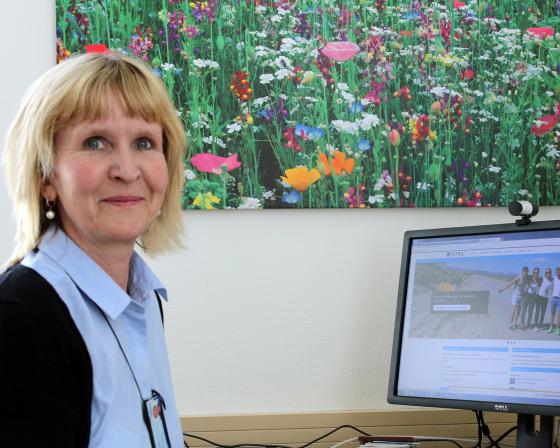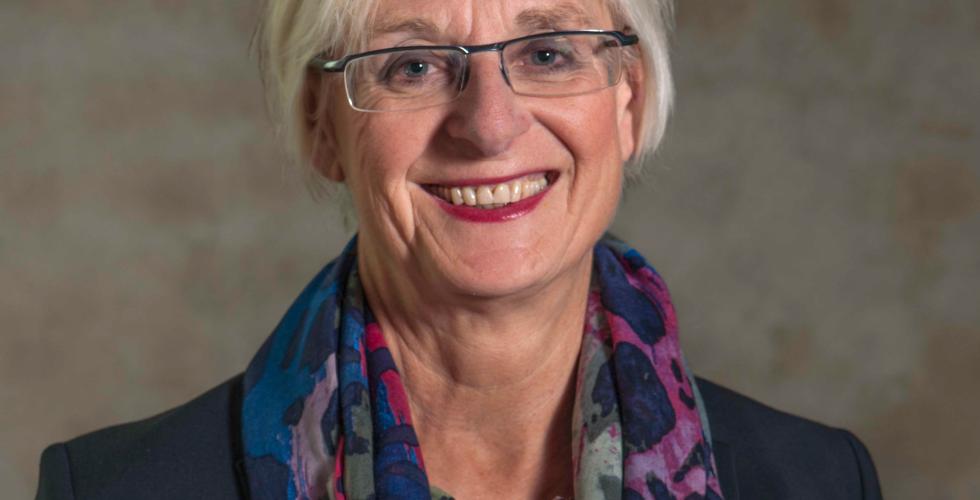New demands on managers
Candidates for NTNU’s management positions must now document that they have competency in gender equality. But what kind of competency are we really talking about?
“There is still a lot of work to be done to achieve gender balance, and it is critical to have people in leadership positions with a heightened awareness of gender equality issues.”
This is according to Ida Munkeby, Director of Organization at the Norwegian University of Science and Technology (NTNU). The background for her comments is the university’s job announcement for Pro-Rector for Innovation – which has become a topic of discussion among both gender equality advisers and others in the higher education sector:
“NTNU is making a conscious effort to increase gender equality, and the institution emphasizes gender balance in its management groups,” the job announcement states. “Knowledge about and results from active gender equality efforts are given importance when recruiting managers.”
“A well-thought-out approach to equality issues and gender perspectives will be among the important aspects of the hiring process. The same applies to the candidates’ insight into how to actively seek out highly qualified women,” adds Munkeby.
The deputy chair of the KIF Committee, Ingrid Guldvik, has words of praise for the measure:
“NTNU has high status in Norway, and can therefore serve as an important role model, so it’s very positive that they are now explicitly requiring competency in gender equality within the management,” she says.
“In addition, NTNU has shown it understands that this is the way to go: Gender equality and diversity efforts must become a part of the day-to-day activities of the organisation. I think this is very positive.”
In other words, NTNU and Rector Gunnar Bovim have listened to organization researcher Anna Wahl, who said during the structural reform conference in June that all managers in academia should have competency in gender equality and that this should be emphasized in job announcements.
One task of the new pro-rector will be to develop NTNU’s strategies for innovation in society and to work for research-based innovation in cooperation with the business sector and the public administration.
Long experience, slow progress
Munkeby confirms that all future pro-rector and dean positions that need to be filled will have the same requirement in the job announcement.
“We will intensify our gender equality and diversity efforts in the future, and this is one of the steps we are taking to accelerate matters,” she explains.
NTNU is a broad-based university whose main profile focuses on technology and natural science – traditionally male-dominated disciplines. The university can look back on many years of active efforts to increase gender equality. Like other academic institutions, NTNU has a long way to go before it achieves genuine gender balance, and progress is slow – especially at the highest level. In terms of the number of female professors, the university currently comes in fourth place in Norway, behind UiT – The Arctic University of Norway, the University of Oslo and the University of Bergen.
There is no doubt, however, that the technology-oriented institution can point to several positive trends in recent years: The number of female students in technology subjects has increased dramatically, and the recruitment events targeting young women, Jentedagen and Jentecamp, are regarded as a success. Qualifying grants and mentoring schemes for female researchers have also had a positive effect, and the percentage of female professors at the university rose by 10 percent in 2004–2014. In 2007, NTNU was the first institution to receive the Gender Equality Award presented by the Ministry of Education and Research.

“We have done good work with gender equality for several years now, but we see that we need new measures to give our efforts a real boost. This is why we are now taking this step and introducing the requirement for competency in gender equality in management positions,” says Munkeby.
According to Guldvik of the KIF Committee, another reason the measure is positive is that it will create additional pressure to achieve concrete results:
“Thanks to this competency requirement, results in this area will be evaluated on a continual basis, such as during employee performance reviews. What has the manager accomplished, what has he or she achieved with regard to equality? This will be an ongoing topic, which in turn will lead to more mainstreaming – that is, integrating gender equality efforts into the day-to-day activities of the organization,” says Guldvik.
Competency: Awareness
“But can you say specifically how will you assess the candidates’ competency in this area?”
“It’s not the case that we have a complete list of qualifications,” says Munkeby.
“During the interviews we will ask the candidates to reflect on gender equality and diversity issues and talk about their own experiences. We will not necessarily require the candidates to have quantitative results to refer to. Rather, the most important thing is that we hire conscious managers who are already aware of gender equality perspectives.”
This means in part that the candidates should understand how easy it is for gender equality and diversity issues to get put on the backburner if care is not taken to keep them on the institution’s agenda, according to Munkeby:
“It’s easy to rest on the belief that gender equality and diversity will happen on its own. That is usually not the case,” says Munkeby, who also confirms Guldvik’s hope that the new competency requirement will entail continual follow-up:
“It’s clear that results in the gender equality area will be a topic of discussion in the employee performance reviews, but we have already been doing this for a long time. We continually discuss this with the current deans; we look at statistics and stay apprised of the situation at all times. Of course we will not let up now. We will continue to follow up.”
Gender perspectives in education are more important
Guldvik thinks it is also important to take a long-term perspective on the university managers with gender equality competency:
“Hopefully this is a new trend, and of course it also requires more gender perspectives in educational programmes in general so that future managers have competency in gender and gender equality,” she says.
“The awareness and reflection needed to be a manager who is competent in gender equality are qualities that must be increased through education. Managers must learn to analyse strategies, situations and measures in a gender perspective: What are our goals, how will we reach these goals, what do the proposed measures mean for women, and what do they mean for men? And not least, how should we assess various issues from a diversity perspective in which we also include gender?” she asks, and then continues:
“The applicants for these management positions must also demonstrate knowledge of how recruitment processes often involve implicit bias and how this often recurs in the systems we believe are fair. People who work with gender equality must be aware that there is biased recruitment in both qualifying and recruitment processes. Therefore, it will also be important to mainstream these gender perspectives into many different educational paths in order to build competency in the long term,” says Guldvik.
Active search process
“Can you be more specific about the kinds of issues the new university managers should consciously take into account in their work?”
“When NTNU must fill professor positions and choose among the various candidates, the management must know how to search for highly qualified women using measures such as search committees,” says Munkeby.
“Managers with gender equality competency must know how to offer female academic employees good career development opportunities. And they must know how to search by casting a wide net and taking conscious action when they want to hire employees from outside the institution.”
Despite NTNU’s progress in male-dominated fields, where gender balance has improved especially at the lower levels, better gender balance in technology-oriented subjects remains a challenge, according to Munkeby:
“In some contexts it may be difficult to identify the highly qualified women and get them to step forward and say that they want to apply, to get them to commit. Then you must have the ability to look beyond the circles you know, beyond your own network, and search actively.”
Translated by Connie Stultz.
The Committee for Gender Balance and Research (the KIF Committee) is concerned that mergers, or structural changes, in the research sector do not ignore gender balance and diversity, but rather offer new opportunities to strengthen the effort to improve gender equality. Therefore, NTNU and the KIF Committee organised the conference entitled “Structural reform in the higher education sector: Promising for gender equality?” earlier this year.
Read previous news articles on kifinfo:
Disappointed about NTNU’s lack of gender perspectives
Rectors do not want gender equality put on hold
Ombudsman will ensure gender equality
Contact information
Ida Munkeby is Director of Organization at the Norwegian University of Science and Technology (NTNU).
Ingrid Guldvik is Deputy Chair of the KIF Committee and Dean at Lillehammer University College.




